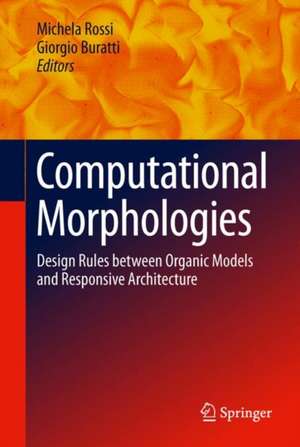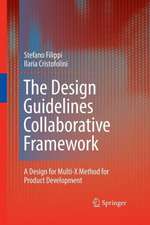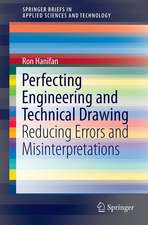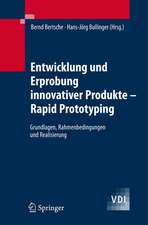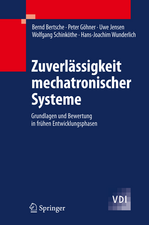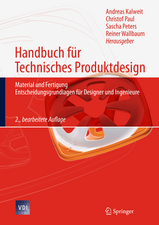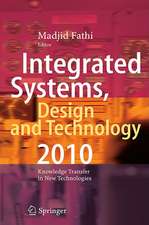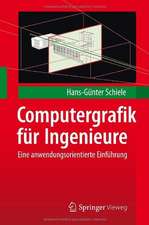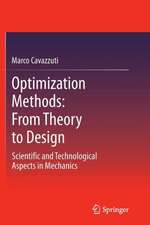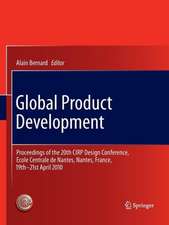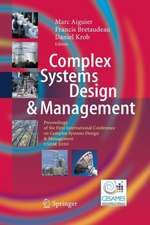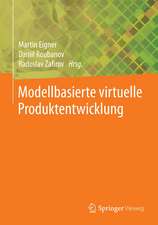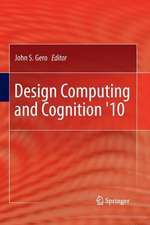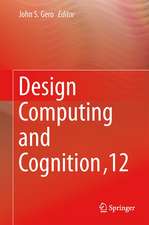Computational Morphologies: Design Rules Between Organic Models and Responsive Architecture
Editat de Michela Rossi, Giorgio Burattien Limba Engleză Hardback – 17 oct 2017
| Toate formatele și edițiile | Preț | Express |
|---|---|---|
| Paperback (1) | 556.65 lei 38-44 zile | |
| Springer International Publishing – 17 mai 2018 | 556.65 lei 38-44 zile | |
| Hardback (1) | 567.32 lei 38-44 zile | |
| Springer International Publishing – 17 oct 2017 | 567.32 lei 38-44 zile |
Preț: 567.32 lei
Preț vechi: 709.15 lei
-20% Nou
Puncte Express: 851
Preț estimativ în valută:
108.57€ • 117.89$ • 91.20£
108.57€ • 117.89$ • 91.20£
Carte tipărită la comandă
Livrare economică 19-25 aprilie
Preluare comenzi: 021 569.72.76
Specificații
ISBN-13: 9783319609188
ISBN-10: 3319609181
Pagini: 234
Ilustrații: XIV, 234 p. 146 illus.
Dimensiuni: 155 x 235 mm
Greutate: 0.53 kg
Ediția:1st ed. 2018
Editura: Springer International Publishing
Colecția Springer
Locul publicării:Cham, Switzerland
ISBN-10: 3319609181
Pagini: 234
Ilustrații: XIV, 234 p. 146 illus.
Dimensiuni: 155 x 235 mm
Greutate: 0.53 kg
Ediția:1st ed. 2018
Editura: Springer International Publishing
Colecția Springer
Locul publicării:Cham, Switzerland
Cuprins
Form and Code.- Design and Responsivity.- Digital Applications and Cultural Heritage.
Textul de pe ultima copertă
This book represents an invaluable and up-to-date international exchange of research, case studies and best practice to tackle the challenges of digital technology, computer-aided design, 3D modeling, prototyping machines and computational design. With contributions from leading experts in the field of industrial design and cultural heritage, it is split into three parts. The first part explores basic rules of design, design models and shape grammar, including the management of complex forms, and proves that innovative concepts may be derived from organic models using generative design. The second part then investigates responsive design, describing how to manage the changing morphologies of buildings through pre-programmed mechanisms of real-time response and feedback embedded in inhabitable spaces. Lastly, the third part focuses on digital heritage and its capability to increase the interaction and manipulation of object and concepts, ranging from augmented reality to modeling generative tools. The book gathers peer-reviewed papers presented at the eCAADe (Education and Research in Computer-Aided Architectural Design in Europe) Regional International Symposium, held in Milan, Italy, in 2015.
Caracteristici
Discusses computational design applications in product design and cultural heritage Addresses academic researchers and industry professionals interested in industrial design Written by leading experts in the field Includes supplementary material: sn.pub/extras
